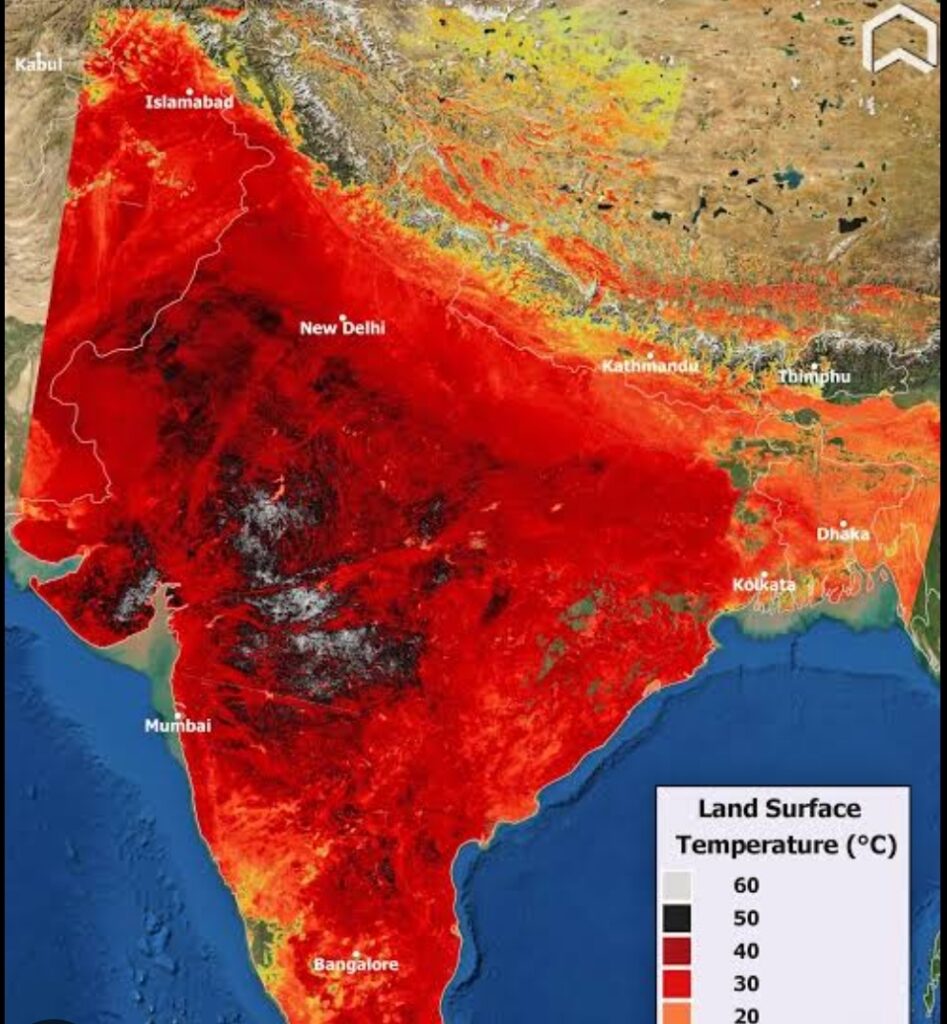Source: The Weather Channel
As temperature rises across the region, a relentless heat wave has settled in, prompting health officials to issue warnings and advisories to residents. With temperatures expected to climb well above normal for this time of year, authorities are urging everyone to take precautions to stay safe and cool.
Vulnerable populations, including the elderly, young children and those with chronic medical conditions are particularly susceptible to the dangers of extreme heat. Community centers and public facilities have been designated as cooling centers, providing respite from the oppressive temperatures for those without access to air conditioning. Officials are also urging neighbors to check on elderly or vulnerable individuals who may be at the risk during the heatwave.
Source: The Indian Express
In addition to the health risk posed by the heat, the prolonged period of hot and dry weather has increased concerns about Wildfires. With vegetation passed and soil moisture levels low, the risk of wildfires igniting and spreading rapidly is heightened. authority urging residents to exercise extreme caution with outdoor activities that could in advertisement Spark a Blaze, As campfires or fireworks. Additionally, fire bans and restrictions are in effect in many areas to minimize the risk of wildfires.
The heat waves impact extends beyond health and safety concerns affecting various sectors of the economy. agriculture community or grappling with the effects of drought conditions, which can damage crops and reduce yields. farmers are implementing water conservation measures and adjusting planting schedules to mitigate the impact of the extreme weather on their livelihoods. Similarly, energy demand is souring as residents rely on air conditioning to stay cool, putting strain on power grids and potentially leading to blackouts or brownouts.
Source: Times Of India
Transportation networks are also feeling the Heat, with roads buckling under the intense sun and train tracks expanding, causing delays and descriptions to travel schedules. Airlines or implementing heat related precautions, such as weight restriction on flights and adjustments to take off and landing procedures, To ensure passenger safety in the sweltering conditions.
Solutions to mitigate heat waves include implementing urban planning strategies like green spaces and cool roofs to reduce the urban heat Island effect. Increase in public awareness about heat wave risk and providing access to cooling centers and emergency services are crucial. Additionally, improving infrastructure resilience, such as upgrading power grids to handle increased demand during heat waves, can prevent widespread disruptions.
In conclusion, understanding the causes of heat waves and taking proactive precautions are essential for reducing their impact on human health and infrastructure. Implementing long term solutions from urban planning to infrastructure upgrades is crucial in addressing the escalating threat of heat waves exaggerated by climate change. by adopting a multifaceted approach, communities can better adapt and protect themselves against the challenge posed by heat waves.



